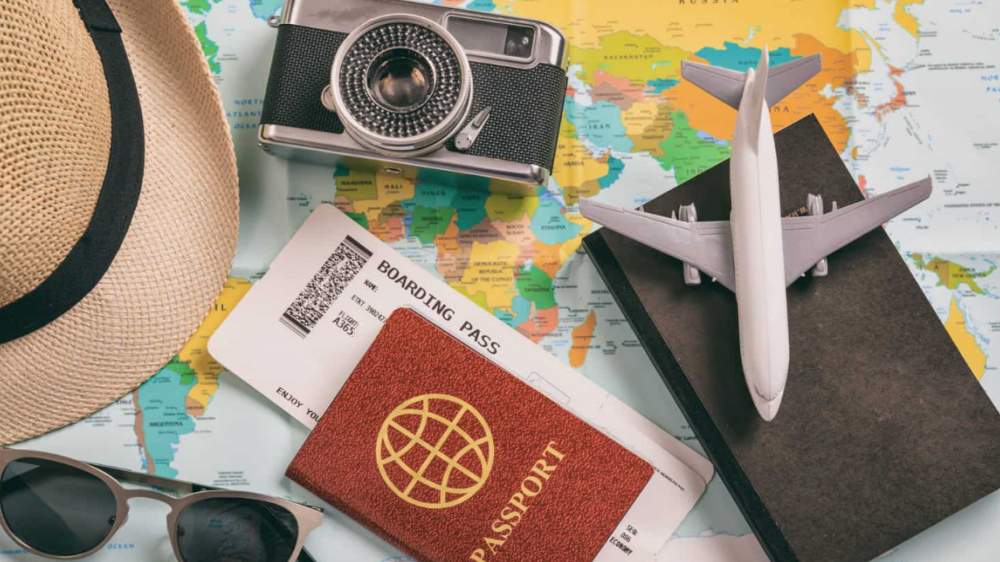Introduction
Ah, the thought of a vacation: a chance to relax, explore, and forget about the daily grind. Whether you’re dreaming of lounging on a tropical beach, hiking through the mountains, or exploring a vibrant city, a vacation is the perfect way to recharge your batteries. But let’s face it—planning a vacation can sometimes feel like a full-time job. From booking flights to finding the best hotels, there’s a lot that goes into making sure everything goes smoothly.
The good news? It doesn’t have to be overwhelming! In this article, we’ll guide you through the process of planning the perfect vacation, offering helpful tips and tricks to ensure your trip is as stress-free as possible. Ready to pack your bags? Let’s dive in!

Choose Your Destination Wisely
The first step in planning any vacation is deciding where you want to go. Sounds easy, right? But with so many incredible destinations to choose from, it can quickly become overwhelming. You might be tempted to pick the first place that comes to mind, but a little thought and research can go a long way in ensuring you choose a destination that suits your interests, budget, and travel style.
How to Choose:

- Consider Your Interests: Do you love history, adventure, or simply relaxing on a beach? Think about what excites you most and choose a destination that offers those activities.
- Set a Budget: A big part of choosing a destination is figuring out how much you’re willing to spend. If you’re on a budget, consider destinations that are more affordable in terms of flights, accommodations, and dining.
- Travel Time: Don’t forget to factor in how much time it will take to get there. Long-haul flights can eat into your vacation time, so consider the travel duration when planning.
Plan Ahead (But Not Too Much)
Once you’ve settled on a destination, it’s time to start planning the details. While it’s important to have an itinerary to make the most of your time, don’t fall into the trap of over-scheduling every minute. A well-balanced vacation should have a mix of planned activities and free time to explore and unwind.
How to Plan:
- Book Flights and Hotels Early: The earlier you book, the better. Flights and hotels are often cheaper when booked in advance, and you’ll have more options to choose from.
- Research Local Attractions: Make a list of must-see attractions, but leave room for spontaneity. You never know when you might stumble upon a hidden gem!
- Don’t Overdo It: While it’s tempting to squeeze in every activity possible, don’t forget to leave time to relax. A vacation should be enjoyable, not exhausting.

Pack Like a Pro
Packing is one of the least glamorous parts of any vacation, but it’s also one of the most important. Overpacking can make you feel weighed down, while forgetting essentials can turn your dream vacation into a series of frustrating moments. The key is to strike a balance between packing light and bringing everything you need.
Packing Tips:
- Make a List: Start by making a packing list to ensure you don’t forget anything important. Break it down into categories like clothing, toiletries, documents, and gadgets.
- Choose Versatile Clothing: Bring clothing that can be mixed and matched, so you don’t need to overstuff your suitcase. Remember, you can always buy what you need while you’re there.
- Pack Light: Aim to pack only what you’ll actually use. Overpacking not only makes your suitcase heavier but also takes up valuable space that could be used for souvenirs!

Don’t Forget Travel Insurance
It’s easy to overlook, but travel insurance can be a lifesaver in case of unexpected events. From cancelled flights to lost luggage or even medical emergencies, travel insurance can provide peace of mind and financial protection.
Why It’s Important:
- Flight Delays and Cancellations: If your flight gets delayed or canceled, travel insurance can help you rebook or compensate for the inconvenience.
- Medical Coverage: Depending on your destination, your regular health insurance may not cover you abroad. Travel insurance can cover medical expenses if you get sick or injured while traveling.
- Lost Luggage: If your luggage gets lost or delayed, insurance can help you recover the cost of replacing your belongings.
Stay Connected (But Not Too Much)
In today’s digital age, it’s easy to stay connected to work, family, and friends while traveling. But let’s be real—vacation is meant to be a break from the everyday hustle. Striking a balance between staying connected and disconnecting from your daily routine is essential for truly enjoying your time away.
How to Stay Connected:
- Set Boundaries: Limit your screen time to avoid getting caught up in emails, social media, and work calls. Set aside a specific time each day to check in if necessary.
- Use Wi-Fi Wisely: Take advantage of free Wi-Fi at your hotel or local cafes to stay in touch with loved ones, but be mindful of overusing data or getting distracted.
- Turn Off Notifications: Consider turning off email and work notifications while on vacation. This simple step will help you fully immerse yourself in your travels.

Embrace Local Culture
One of the best parts of traveling is experiencing new cultures and trying new things. Don’t just stick to tourist spots—get out there and interact with locals, sample traditional foods, and learn about the customs of the area. Embracing the local culture will not only enrich your travel experience but also help you gain a deeper understanding of the place you’re visiting.
How to Embrace Culture:
- Try Local Food: Be adventurous with your food choices! Don’t just stick to familiar dishes—try regional specialties and street food.
- Learn a Few Phrases: Even if you’re not fluent, learning a few key phrases in the local language (like “hello” or “thank you”) can go a long way in showing respect to the locals.
- Explore Beyond the Tourist Spots: While major attractions are a must-see, don’t forget to venture off the beaten path. Some of the most memorable experiences happen when you step away from the crowds.
Relax and Enjoy the Moment
Finally, don’t forget the most important part of any vacation: relaxation. After all, you’re not just there to check items off a list; you’re there to enjoy yourself! Allow yourself to take a break from the constant rush and simply enjoy the present moment.
How to Relax:
- Unplug: Leave work behind and focus on your surroundings. Whether you’re on the beach, hiking a trail, or strolling through a local market, take time to truly appreciate the beauty of your destination.
- Take It Slow: There’s no need to rush. If you’re enjoying something, don’t feel pressured to move on to the next activity. Let yourself linger and soak it all in.

Conclusion
Planning the perfect vacation doesn’t have to be stressful or complicated. With a little preparation and a lot of excitement, you can create the getaway of your dreams. Remember, the goal is to relax, explore, and enjoy the journey—so take it one step at a time, embrace the adventure, and have fun!






